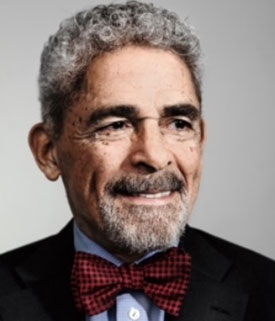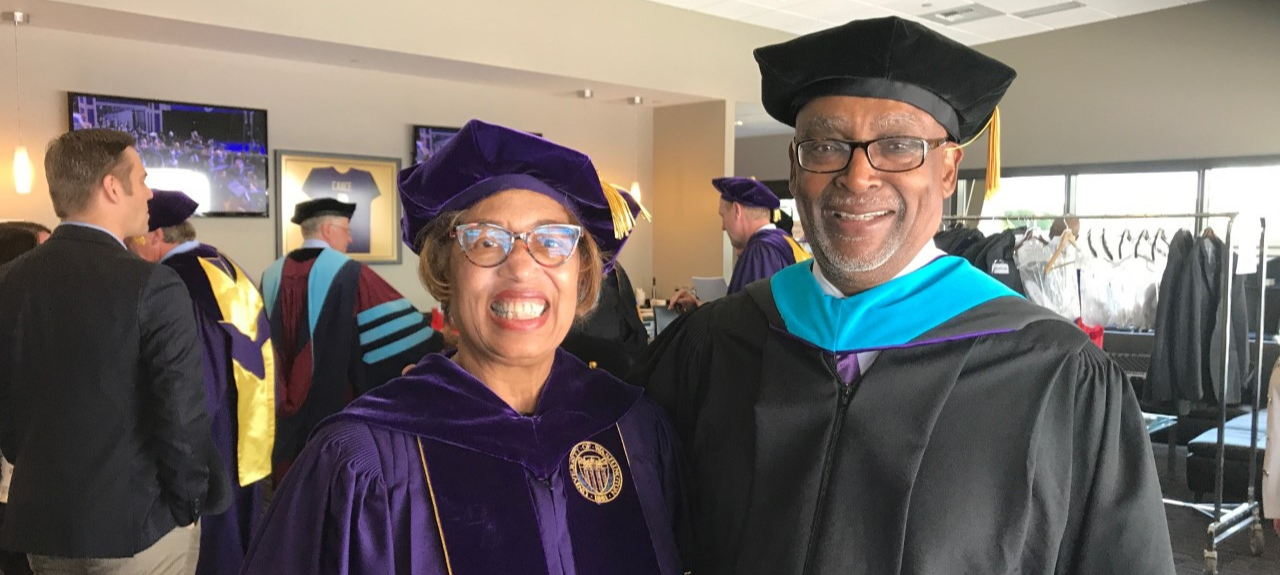In honor of Black History Month, we’re highlighting three Black trailblazers who continue to make significant strides in Seattle.
Voices are hushed. Steady music comes from the altar. And the worship leaders remind their congregation of the importance of contributing anything they can. The donations range from a $1 to $1,000. No amount is too small – or too big – to make a difference.
This scene during a Sunday church service is what Dr. Constance Rice parallels when discussing the importance of giving back to – and through – community foundations.
“Every dollar that goes into the offering plate, really compounds itself into big dollars for the church,” she explained. “The same concept holds true for community foundations.”
Dr. Constance Rice and her husband, Norman (Norm) Rice, are deeply connected to the city of Seattle and Seattle Foundation. A former Trustee of the Foundation, Dr. Rice spent more than a decade working as the Managing Director of Casey Family Programs. She is deeply committed to education and was the first Black woman to receive a doctorate in higher education administration from the University of Washington School of Education. Her distinguished career as an educator includes Chair of the Ethnic Studies Department at Shoreline Community College, Director of Western Washington University’s Center for Urban Studies in Seattle, and Vice Chancellor for Institutional Advancement at Seattle Community College District. She also served as interim President of North Seattle Community College and is the current Board Chair of the Seattle Art Museum.
Norm Rice is a well-respected trailblazer who became the first Black Mayor of Seattle in 1990 and held the position until 1998. In July of 2009, he became the President and CEO of Seattle Foundation. Rice’s retirement announcement in 2013 pointed to his deep commitment to the public and community service sectors. Under his leadership, Seattle Foundation launched GiveBig, a day-long online giving campaign. Since its inception, the campaign has raised $144 million for nonprofits. He also focused the Foundation’s work in the areas of education and economy opportunity, incubating and supporting the launch of organizations such as the Community Center for Education Results, SkillUp, YearUp and Teach for America.
For the Rice family, a strong commitment to education and understanding of Seattle Foundation’s desire to create a vibrant community for all is why they started the Eliott Fund, which supported scholarships and education programs for nearly a decade. Dr. Rice, who currently sits on the Board of Regents at UW, says it’s a gratifying experience.
“Our fund has always been interested in the elevation of African Americans and other individuals of color in education,” Dr Rice said. “It’s just a joy to be able to pay what we’ve gained in life forward.”

History-maker Dr. Carver Gayton also has close ties to the Foundation and city of Seattle. As a graduate of Garfield High School, Gayton went on to earn his bachelor’s degree from UW in 1960. In 1964, Gayton became the first Black Federal Bureau of Investigation agent from the state of Washington. Not done setting “firsts,” Gayton also became the first full-time Black coach — of any sport — at UW in 1968 when he assumed leadership of the football team. He resigned the following year, showing his solidarity in protest to the suspension of four Black players after they refused to pledge personal loyalty to the head football coach. The former athletes and Gayton were inducted into the 2021 Husky Hall of Fame for their stand.
“I had no trepidation at all,” Gayton said as he reflected on that moment. “You’ve got to maintain your integrity, and that’s what those football players did.” Following the incident, Carver accepted an appointment to the new position of Director of Affirmative Action Programs at UW. He continued his education at UW and eventually earned a Ph.D. from his alma mater.
For Gayton, the importance of higher education and desire to uplift his family’s legacy at First African Methodist Episcopal Church resulted in the John and Virginia Gayton Education Fund. The Fund, which started with the establishment of a library in 1995, is named after Gayton’s parents and is administered through Seattle Foundation. Recipients of the scholarship fund are selected by members of the First African Methodist Episcopal Church, of which Gayton’s grandparents were founding members. Gayton says it’s a partnership that has worked well since the start.
“I’ve been pleased with the relationship,” Gayton said. “The Foundation handles the administrative aspect of it, but the decision as to who gets the scholarship is made by the church.”
Both the Rice Family and Gayton say that their efforts should be measured in time, in addition to the dollars contributed to the community. The John and Virginia Gayton Education Fund has provided close to $30,000 to students since its inception, while the Elliott Fund has provided more than $42,000 to education and general support programming. Although relatively modest amounts, these Black pioneers continuously lean into the power of the collective – and model how every dollar works in greater service for the community.
“Just as every dollar in the offering plate gets compounded and grows stronger, so does the strength of people who are able to come together,” Dr. Rice said. “We’re doing what we can to help others get to a better place.”
The idea that we all have a responsibility to work together is echoed in Seattle Foundation’s Blueprint for Impact, which calls us to envision a thriving region of shared prosperity, belonging, and justice. Both the Rices say they hope this responsibility is shared – and enjoyed – among the next generations.
“This is a long journey and donors have to understand that,” Norm said. “It requires patience, but once donors see and understand the work that is being done, it creates excitement.”
“I would tell the next generation to get involved and stay involved,” Dr. Rice shared. “It’s fun to be side by side with other people in the community foundation who are also doing and giving – and those little amounts of work and money add up.”

